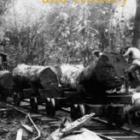Padua, Jose Augusto. “ ‘Annihilating Natural Productions:’ Nature’s Economy, Colonial Crisis and the Origins of Brazilian Political Environmentalism (1786–1810).” Environment and History 6, no. 3 (Aug., 2000): 255–287. doi:10.3197/096734000129342307. The article analyses the trajectory of a group of Brazilian intellectuals from 1786 to 1810, who inaugurated a systematic critique of the environmental damage caused by colonial economy in Brazil, especially forest destruction and soil erosion. These authors, schooled in the culture of the Enlightenment, adopted a theoretical framework centred on physiocratic economic doctrine and the ‘nature’s economy’ encoded by Linnaeus. Their focus was political, anthropocentric, and pragmatic. They defended the natural milieu on the basis of its importance for the survival and progress of Brazilian society. Waste and destruction of natural resources were attributed to the rudimentary technologies and social practices inherited from the colonial system. They proposed an overall modernisation policy as the road to overcoming environmental degradation in the country. All rights reserved. © 2000 The White Horse Press
"'Annihilating Natural Productions:' Nature's Economy, Colonial Crisis and the Origins of Brazilian Political Environmentalism (1786–1810)"
Padua, Jose Augusto | from Multimedia Library Collection:
Environment and History (journal)


